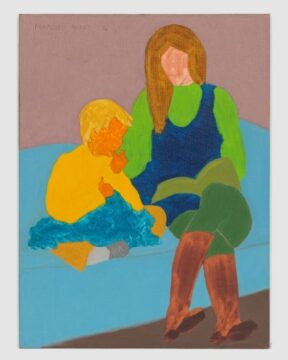Anastasia Berg in The Cut:
 To have a child, it is often said, is to transform one’s identity. What this might have meant in the past is more or less obvious: With few exceptions, for the better part of history, to have a child meant it was time for a woman to say her final farewells to whatever public existence she managed to forge up to that point. But now there is another, more mysterious change that becoming a mother is understood to imply, more basic than the historical conditions of oppression. This change is supposed to reconfigure the deepest core of one’s being. When the contemporary analytic philosopher L. A. Paul wanted to introduce the idea of a fundamentally transformative experience, one of her central examples was having a child. For women, especially, becoming a parent is frequently described as a total revolution of the self. “Giving birth to a baby is, literally, splitting in two, and it is not always clear which one your ‘I’ goes with,” philosopher Agnes Callard wrote in a reflection on the relief she felt after losing an unplanned pregnancy.
To have a child, it is often said, is to transform one’s identity. What this might have meant in the past is more or less obvious: With few exceptions, for the better part of history, to have a child meant it was time for a woman to say her final farewells to whatever public existence she managed to forge up to that point. But now there is another, more mysterious change that becoming a mother is understood to imply, more basic than the historical conditions of oppression. This change is supposed to reconfigure the deepest core of one’s being. When the contemporary analytic philosopher L. A. Paul wanted to introduce the idea of a fundamentally transformative experience, one of her central examples was having a child. For women, especially, becoming a parent is frequently described as a total revolution of the self. “Giving birth to a baby is, literally, splitting in two, and it is not always clear which one your ‘I’ goes with,” philosopher Agnes Callard wrote in a reflection on the relief she felt after losing an unplanned pregnancy.
More here.
